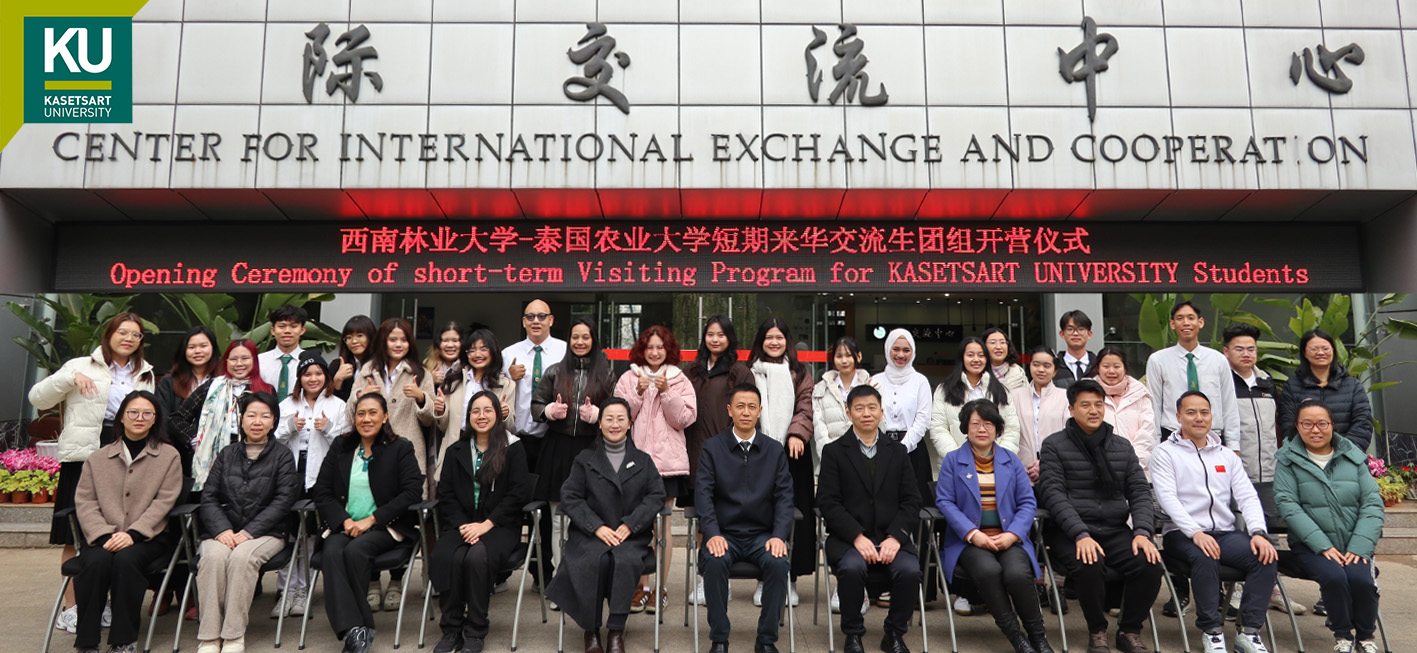On 2 May 2025, at 2:00 p.m., Kasetsart University hosted a special
lecture entitled “Innovation Strategies to Overcome Middle-Income Trap: Korean
Experience and Implications” at the Kamphol Adulavidhaya Conference Room, 2nd
floor of the Golden Jubilee Administration and Information Center Building. The
event was organized to provide an opportunity for KU personnel to learn from
the economic development strategies of the Republic of Korea. The lecture was
graciously delivered by Professor Jeong-Hyop Lee, Economic Advisor, Ministry of
Industry and Commerce, Lao PDR, and former Senior Advisor on Deep Science and
Technology to the Program Management Unit for Competitiveness Enhancement
(PMUC), Thailand.
On this occasion, Professor Kornsorn
Srikulnath, Ph.D., Assistant to the President for Research and
Internationalization, presided over the opening ceremony and presented a token
of appreciation to Professor Jeong-Hyop Lee before the lecture commenced. The
lecture covered the following key issues:
•
The Path of Innovation and Lessons from Korea
•
System Diagnosis Framework and Policy Design
• Knowledge Transfer Strategies and Korea’s Model:
Recommendations on Digital Security, Energy, and Other Areas
During the session, Professor Lee
emphasized the importance of policy design tailored to the economic and social
structure of each country. He illustrated how South Korea successfully escaped
the middle-income trap through systematic investments in science, technology,
and human capital development. He also shared strategic insights that could be adapted
to the Thai context, such as strengthening linkages between research and
industry, integrated innovation management, and the promotion of a sustainable
innovation ecosystem.
This seminar aimed to bridge the
gap between theoretical knowledge and policy implementation by drawing valuable
lessons from Korea’s development journey, offering guidance for other countries
striving for sustainable economic growth. The lecture attracted more than 50 KU administrators, faculty, and staff members and served as
an important platform for exchanging knowledge on Korea’s national development,
especially its innovation-driven and policy-oriented approaches—insights that
could be adapted for Thailand’s sustainable transition beyond the middle-income
trap.






